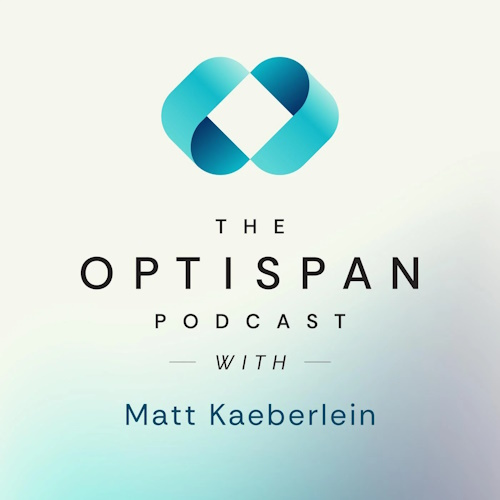Rapamycin Improves Autophagy? | Analyzing Longevity News
Optispan podcast episode - Matt Kaeberlein reviews three new studies on the anti-aging drug rapamycin
In this episode of the Optispan podcast, Matt breaks down three recent studies making waves in the longevity community, with a special focus on the anti-aging drug rapamycin. Two studies examine rapamycin’s impact on Alzheimer’s and chronic fatigue syndrome (CFS), while the third looks at whether taurine levels truly decline with age. The episode critiques the limitations of some research while highlighting the promise of others, especially in real-world applications.
Key Points:
Recent studies suggest rapamycin could significantly relieve symptoms in chronic fatigue syndrome patients, particularly those with post-viral onset, though current evidence for its benefits in Alzheimer’s disease remains weak due to poor study design. However, a better-designed clinical trial and supporting molecular data offer growing optimism that rapamycin may prove useful in treating neurodegenerative diseases and long-term inflammatory conditions.
- Rapamycin & Alzheimer’s- Study Too Small to Matter: A pilot study using 1mg/day rapamycin in Alzheimer’s patients failed to produce meaningful results due to its small size, lack of a control group, and poor dosing strategy. The host critiques it as “predictably inconclusive.”
- Why Brain Penetration May Not Matter: Although rapamycin wasn’t detected in cerebrospinal fluid (CSF), the host argues it could still influence brain function via indirect systemic effects, such as reducing inflammation.
- Promising Rapamycin Trial for Alzheimer’s Underway: A better-designed trial using 7mg weekly dosing is in progress. It includes cognitive, imaging, and CSF measures, and could offer clearer insights into rapamycin’s brain effects.
- Breakthrough in Chronic Fatigue Syndrome (CFS): A new preprint study of 86 CFS patients found weekly rapamycin (6mg) significantly improved fatigue, sleep, and quality of life in ~75% of participants—especially those with post-viral CFS.
- Molecular Evidence Supports Real Benefit: Improvements in autophagy markers and consistently strong symptom relief suggest the benefits may be biological, not just placebo—despite the study's lack of a control group.
- Taurine Biomarker Study Disappoints: A recent Science paper showed taurine levels don’t universally decline with age. However, it failed to test whether taurine supplementation affects longevity, leaving a major gap.
Visit website: https://www.youtube.com/watch?v=ErrCgS_CwRA
See alsoDetails last updated 26-Jun-2025





